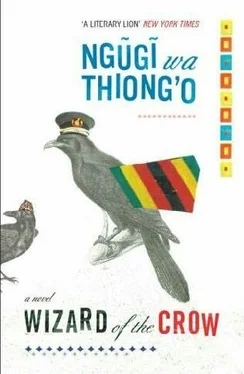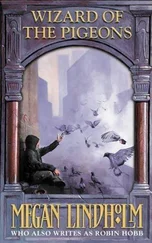Even the name of Julius Caesar became an issue. Who does not know that Julius Caesar was a renowned military general in the days of the Roman Empire who undermined the republic with his ambitions to become emperor? But even long before the Roman chapter of his life, Minister Mambo was calling himself Big Ben, the famous clock that in the days when the sun never set on the British Empire regulated time in the entire empire. The issue of the newspaper that had described Mambo as combining the glory of imperial London and ancient Rome was introduced in court as a crucial exhibit of the man’s inordinate thirst for power. It had been found framed and hanging on the wall of his office. When addressing the people during the so-called People’s Assembly, Big Ben Mambo boasted that his voice was that of the commander in chief of the armed forces, and, most telling, he preferred talking from the top of armored vehicles.
He had also blunted the powers of the imported mirrors by having them shown to the public first and thus ensuring that they captured the interfering shadows that made the discovery of Nyawlra’s whereabouts impossible. In fact, according to Sikiokuu’s testimony, that was obviously a prearranged signal between Mambo and the Wizard of the Crow, because it was soon after that the sorcerer broke the mirrors into pieces. Add to this that there was a time when the Wizard of the Crow corresponded extensively with the late Machokali and the whole plot was now self-evident. What more evidence would the presiding judge really need? the military prosecutor asked the court-martial; it was not necessary to prove the obvious.
Julius Caesar Big Ben Mambo was so totally taken aback by the whole thing that his tongue lengthened and he could not speak to the court in his own defense. The only two words that came out were if and soldiers, but spoken with great force and with a gap between them, as if there was no connection. It is said that when the judge first heard the word soldiers come out of Mambo’s mouth, he thought Julius Caesar was commanding his forces to act, and the judge actually stood up to flee, but realizing his mistake stood still to make it seem as if he were taking the unusual step of standing up to deliver judgment because of the gravity of the facts and, more severely, what the accused was trying to do: threaten the court with his ifs\
Julius Caesar Big Ben Mambo, an officer in the armed forces, was found guilty of plotting with civilians to overturn the properly constituted authority. Unfortunately, his fellow plotters, Machokali, the Wizard of the Crow, and the Limping Witch, were dead and beyond his jurisdiction because they were not soldiers.
A special civilian court was set up later the same day to meet the challenge the presiding judge had posed, with the proceedings of the trial of Big Ben Mambo as the only evidence in the charges against Machokali, the Limping Witch, and the Wizard of the Crow. In the entire history of the Aburlrian judiciary, it had never been heard of people already dead being tried and sentenced to death.
It is said that as he faced the firing squad the blindfolded Julius Caesar Big Ben Mambo found his tongue at the very last minute, Crow… protective … if… but the first bullet did not let him complete the sentence.
At the advice of Tajirika the Buler declared a day when the effigies of the cursed four, Mambo, Machokali, Nyawlra, and the Wizard of the Crow, were to be burned to ensure that their spirits would never come back to haunt the ruling. With television crews following them, ministers, members of Parliament, and convoys of loyal youth outdid one another in burning the biggest possible effigy of their chosen traitor, with some even throwing the flaming figure into the sea. What showed on the screen later that day were scenes of jubilation and triumph. But rumors and eyewitness accounts told of strange happenings!
“True! Haki ya Mungu!” A.C. would tell his listeners years later. “The effigies of Nyawlra and the Wizard of the Crow would not burn-instead they spat balls of fire that chased those who had tried to burn them…”
News of the posthumous sentence and state celebrations of their death eventually reached them in their forest hiding place, where Kamrö was recovering from his gunshot wound and coma.
“We died twice,” Kamltl said.
“At least they have honored us with a state burial,” Nyawlra said, laughing a little.
“A state funeral pyre,” said Kamrö. “Their imitation of fire in Hell.”
His tone spoke of recovery, and she was grateful. The weeks had been harrowing, with Kamrö barely clinging to life. She remembered how they had rushed him to a safe house, where a doctor friend of the movement stopped the blood flow and then moved him to the mountains. The bullet had missed his heart by inches, but its successful removal and a mixture of modern and herbal medicines brought him back from the brink of death. She nursed him through it all, often supporting him when he walked, but not these last days. He was now on his feet, and they often walked in the woods.
She often told him of the details of the day they escaped death, because the trauma, the loss of consciousness, and the coma had left many gaps in his memory. When Kamrö fell, she felt as if her own soul had collapsed with him, and, in covering his body with hers, it was as if she, too, had bid farewell to life. I will die staring him down, she had resolved when she saw Kaniürü pointing a gun at her. I will not give him the satisfaction of showing fear. No sooner had she thought this than she saw somebody grabbing the gun from him; Kaniürü and his attacker, “our savior,” were rolling around on the ground, struggling. She was often frustrated that she could not recall the face of their savior, and Kamltl kept reassuring her that the face and name would come when she stopped thinking about it, but it was always on her mind.
“Linking us with Mambo and Machokali was a big leap in imagination,” Kamltl said.
“Or a case of Baby D blues,” added Nyawlra.
They walked along the banks of the Eldares till they came to a waterfall, and Kamltl was pleasantly surprised to recognize the very place where he once led Nyawlra, only now it was she who led the way. In fact, the difference between their previous sojourn and now was most noticeable in her. Then she was the pupil and he the teacher. Now they were both pupil and teacher.
“When did you learn all this?” Kamltl asked her on another day, sitting under the same tree near the falls. The wound was healing well and fast, and he had even removed the bandages; he could swing the left hand more freely, and altogether he felt fitter, stronger, and more cheerful.
“You should be heaping me with praises for being an apt pupil. Do you think I was not paying attention? And remember that until the arson I was the other Wizard of the Crow,” Nyawlra explained.
“And then you became the Limping Witch?”
“What are you implying? That a Limping Witch is less powerful than a Wizard of the Crow? I challenge you to a power contest.”
“How?”
“Do you see that bird on the tree over there? Make it land on the ground with the power of your sorcery. Go on, sorcerer.”
Kamltl tried whistling different tunes, with varying pitch and rhythm, alternating the whistling with calling out, chirp chirp chirp. The bird seemed to glance toward him and then flew off and landed on a tree nearer to where they sat. This encouraged Kamltl and he tried more of the same, but this time the bird remained impervious to his call.
“You have failed,” she said.
Читать дальше












